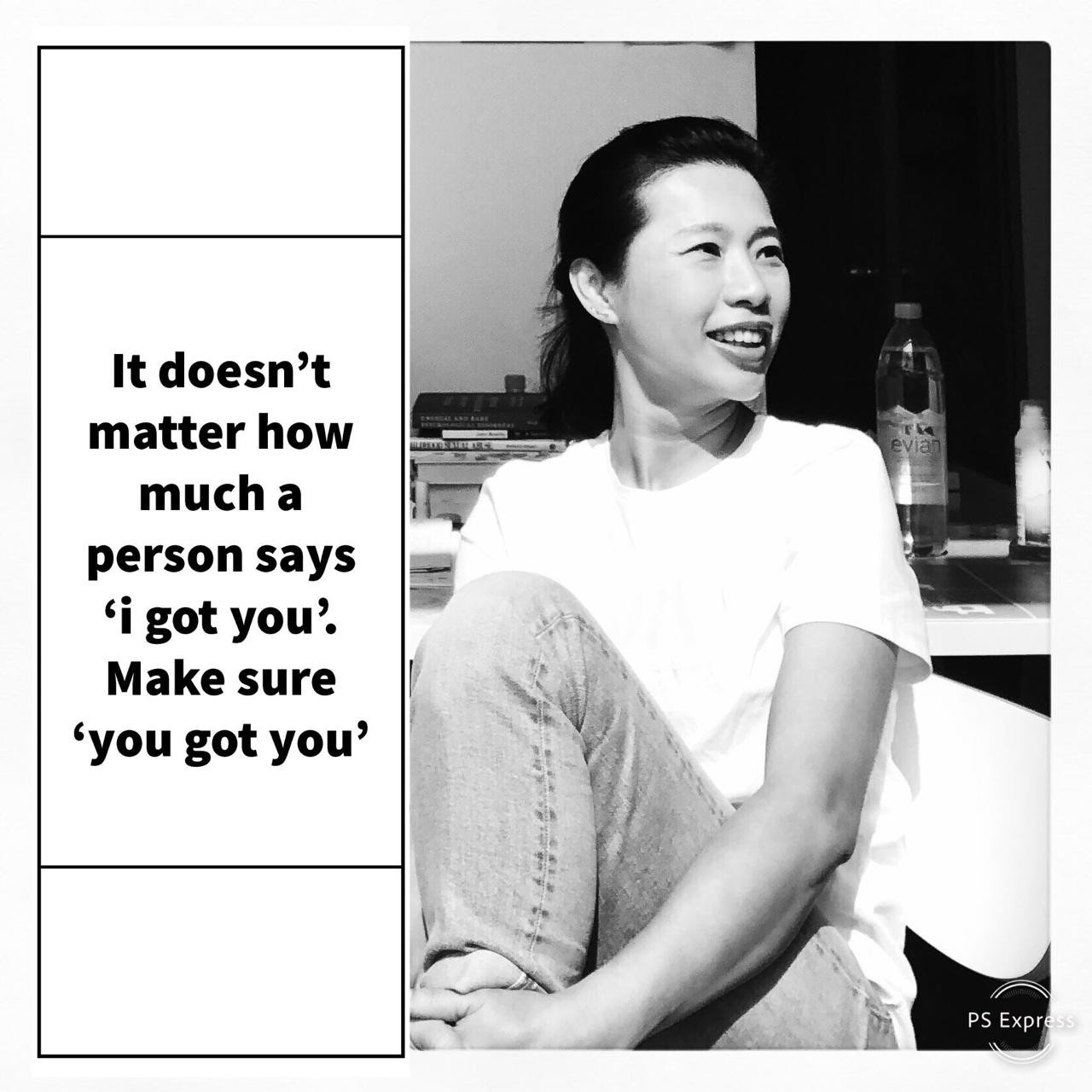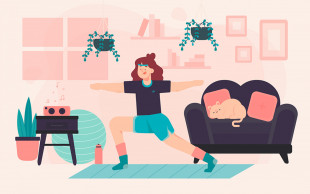
Meet Dr Jasmine Siang, founder of Heart-to-Heart Psychotherapy. When asked to describe her life as a psychologist, she says, “I am a person; my job is a psychologist. I am the same kind of mother, same kind of wife, same kind of people as everyone else.”
Rewiring the Mind: Finding New Possibilities
Therapy is about rewiring the mind and encouraging clients to retell their stories with questions.
“There is no such thing as, ‘What is your problem?’ It is always ‘Who is your problem? Which relationship is not working?’"
The source of distress is always about people, about feeling stuck in significant relationships with people who matter to you. “You can change your laptop, you can change your job, but you cannot change the person, you can’t replace them.”
To help her clients work through their relationships, Dr Siang encourages them to recall their experiences so that they can see the other side of the story. She speaks of the strained relationship between a female client and her mother: “It is very painful to hurt the woman you are supposed to love, especially if she is your mother. You hate yourself for feeling this way, yet you are stuck because you cannot see the other possibilities.”
During the session, Dr Siang guides her clients through the process of recollecting their experiences and brings their attention to the other sides of the story. In doing so, they can better understand the reason behind their emotions, rather than feel trapped and frustrated.
”It is very important to respect every emotion and belief, rather than deny them. Being denied is never a good feeling. My job is to show them the possibilities, so that they can see hope.”
This is how therapy works: she shows them light in a world of darkness, she shows them the possibilities of what can happen, so they feel less trapped. And slowly, therapy rewires the mind so that hope “feels a little brighter, closer, and more possible, so that they can they can take it, and own it.”
The Power of Words
“Come on, look on the bright side.”
“Be yourself!”
“Just be happy.”
“This is the difference between talking to a friend and talking to a professional,” Dr Siang says, smiling. “Everyone has heard these words before; the problem is, how do we do these things? How do we 'be happy?'” Words are very powerful: they shape our behaviour, beliefs, and thoughts. As a therapist, she helps clients work through the misconceptions tied to their beliefs.
For instance, she observes that many of her clients use the word “force”: “she FORCED me to do this,” “he FORCES me to stay at home”. As a result, they feel very powerless.
By guiding them and allowing them to “redefine their dictionary,” she helps them to rethink words like "force" and "I have no choice," so that her clients can regain power when facing the situation.
“There is no chain, you know. You have your house keys; you have your debit card. Your husband may not like it when you go out too often, but no one is FORCING you to stay at home.”
Through this process, she wants her clients to take ownership of the situation.
“In the end, you make the decisions; when you take responsibility for your actions, you gain back the power you didn't know you had.”

“Try Better Next Time.”
“When parents tell their children, ‘do better next time’, what makes them think they are not already trying hard enough? No child comes into this world trying to shame their parents by performing poorly. Everyone is doing their best, but the truth is that no one knows what ‘best’ really means.”
Dr Siang says that it is this misguided way of not fully understanding the words we use that causes us distress. “There are a lot of misleading slogans out there; comparison can give you motivation, but who are you comparing yourself to?”
She asserts that while a lot of us strive to become “better,” to work “harder,” we do not have a clear understanding of what or how we want to improve ourselves. When we do not have a clear goal, comparison becomes toxic.
“You must know what areas you want to improve on; you must know the particular aspect that is the basis of your comparison. If you say you want to be like Steve Jobs, what is it about him specifically you want to emulate? His determination? His communication skills? But no one teaches you that, and no one talks about it either.”
This is the source of a lot of our problems: your thinking is correct, but your method is wrong. “This is where we come in, to make the vague idea clear. We want to show them clarity and bring them closer to reality.”
Mental Illness: Why Are People Still Afraid?
“Mental illness comes along because we have mental health. It’s not because we are weak. If you have a body, then you will have a chance of getting bodily illnesses. It's the same thing.”
“There is so much emphasis on physical health. If you lose an ear, an arm, even if you are half-paralysed, you can still feel happy or angry, you can still laugh and smile. But if you lose your mind, you lose everything. And I don’t know why people still don’t think mental health is important. It’s so scary."
She emphasises that there is a need to be urgent when dealing with mental health and that people should treat it as seriously as they do their physical wellbeing.
“If you have a tumour, you won’t tell the doctor to wait for you to finish your work before you start your chemo. You must be desperate enough to want to fix yourself. If people learn to take care of themselves, the world would be a lot more peaceful. ”
While physical illnesses manifest symptoms, mental illness has no symptoms. We have grown so used to normalising our stress and irritation that we do not think of them as warning signs. “We take these symptoms for granted because we don’t see it. We keep telling ourselves, ‘one more night, two more nights,’ without really understanding what our limits are.”
She likens these emotional injuries to physical cuts: if we do not let them heal properly, they will accrete into triggers that continue to affect our daily lives. It gets worse because we don't know how to talk about these things; we are too afraid to try and understand them.
“We don’t sleep well, we don’t eat well. We are lonely because we don’t know how to tell people; we are scared that people will judge us, and we don’t know what to do. We think we can deal with our loneliness, our anxieties, and stress, but if we don’t understand these things, how are we supposed to manage them?”

On Mindfulness: No, It’s Not Meditation
There’s a reason why Amazon has a laundry list of bestsellers like “The Art of Happiness” and “The Miracle of Mindfulness”: reading self-help books seems to be the new way for us to try and manage our feelings. But why isn't it working? Don't we already know that mindfulness is important?
Apparently not.
News flash: mindfulness is not meditation; it’s about paying attention. Paying attention is a very individual thing, and you don’t have to read the 55,000 titles on Amazon to learn how to be mindful. And no, a 12-session yoga package isn't the solution, either.
For parents who try to get their children to focus in school: don’t just throw abstract words at them; let them try doing it. It’s about going through that initial stage of awkwardness, of stopping the brain from running on autopilot, even for just a moment. “I can’t explain this feeling to you with words. We are all different; what works for you might not work for me. If you don’t understand how to focus and be mindful, how do you expect a child to get it?”
Instead, if we let children learn how to focus by experiencing it, we can teach them to really understand what it means to be mindful so that they can relate to this experience in the future.
“This is where my training comes in: I see clarity a lot easier than my clients do. I can guide them to stop and understand, so that they are no longer making guesses, but taking back the control in their lives.”
One way to train yourself to be more mindful is to challenge your brain in your daily routine: if you are right-handed, try using your left hand to brush your teeth, or get dressed in the morning. Alternatively, sit down and draw something seemingly familiar in detail, like a chilli pepper or your third toe.
“If you want to have clarity, remind your brain of its ability to pause. Being mindful is always about returning to the mind of a beginner.”
This is why overseas vacations can feel so rewarding; in an unfamiliar environment, your mind slows down to pay attention to the surroundings, to people speaking in different languages. You don’t realise that your mind, too, is having a holiday from running on autopilot.
We must always remind our brains of its ability to slow down, to have a beginner's mindset, to stay curious about the world. Sometimes, we move at such a fast pace that we don’t pay attention to the details. We stop caring; we don’t stop to pause and think about being mindful. Tell your brain, “Do not run my life and go at such a fast pace. Pause, and listen to what you want to.”

Strangers To Ourselves
Many of our relationships suffer because we expect others to make us happy, but we don't even know what makes us happy in the first place.
“We’re always waiting for someone else to make us happy and satisfied; we’re always waiting for someone to take care of us. So everyone ends up feeling empty on the inside.”
However, we feel ashamed to go for therapy to learn about ourselves because we think we should already know these things. We feel ashamed that people will think of us negatively if we need therapy to motivate ourselves.
This is what drives Dr Siang's passion for helping others: “To deprive a person of living in peace is worse than dying. The pain is on the inside; Panadol can’t fix it. If I can help people understand and move on from their pain, then a lot of suffering is unnecessary. ”
“I am helping you to see a certain part of yourself, to help you learn what works for yourself. Why don’t people think therapy isn’t worth the effort if you can take these lessons with you into your future relationships, and begin to live the life you want to live? ”
Indeed, psychotherapy rates can seem daunting: Dr Siang charges $280 per 50-minute session. However, she says that there are many resources available for people to find the right therapist for their budget. The important thing right now is for people to stop being afraid of taking steps to understand themselves through therapy.
“But people don't even take mental health seriously, let alone seriously enough.”
There are a lot of people trying to seek help who prioritize their jobs before their mental health and therapy sessions, and many of them are hesitant because they cannot find appointment timings that fit into their busy schedules.
“I wish people would come to therapy and learn about themselves, and write their own instruction manuals on what works for them. I want them to understand that it is more expensive to be sick than to pay for treatment or therapy."
"Put a price tag on your life-- How much is it worth?"
Indeed, what I learnt from Dr Siang's many insights have been immeasurable. And if you don't know what to take away from this interview, let it be her parting words to me:
"Remember to be mindful!"
You can follow Dr Jasmine Siang on Instagram, and contact her at Heart-to-Heart Psychotherapy.
Address: The Central, SOHO 1
6 Eu Tong Sen Street
#09-19 Singapore 059817
(Clark Quay MRT Station)
Tel: +65 9792 2290
Email: jasminesiang@hearttoheart.sg
All photos courtesy of Dr Jasmine Siang.
















